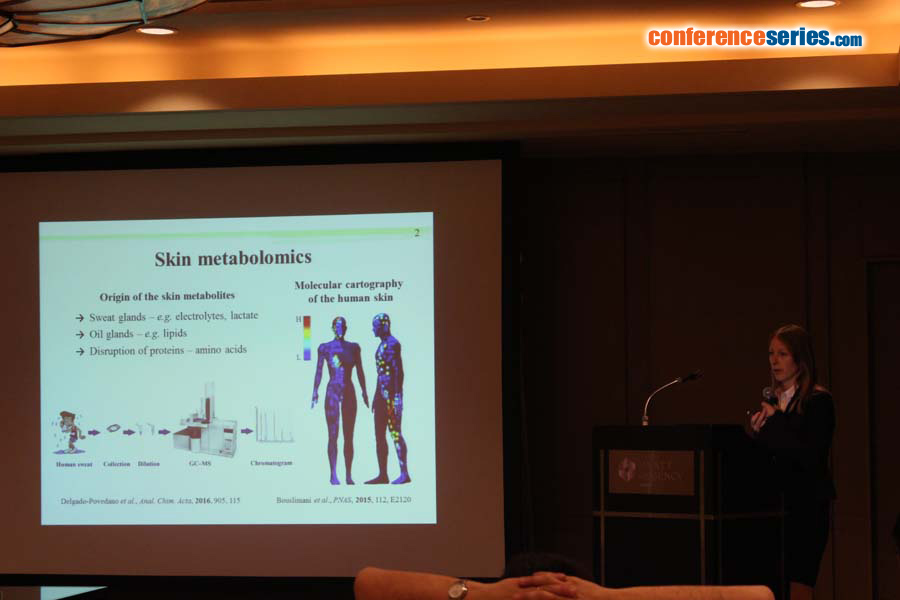
Ewelina P Dutkiewicz
National Chiao Tung University, Taiwan
Title: Skin metabolomics approach for the development of biomarkers in psoriatic disease
Biography
Biography: Ewelina P Dutkiewicz
Abstract
Human skin is covered with numerous low-molecular-weight metabolites excreted by specialized glands of skin or produced during the breakdown of proteins. Those metabolites have a huge potential as disease biomarkers. However, due to the lack of convienient analytical methodology, the analysis of skin excretions has not become popular. Recently, we have introduced a facile method – hydrogel micropatch probe – for collection and mass spectrometric profiling of skin metabolites. We have applied this method to investigate the skin metabolome of patients suffering from one of the skin diseases – psoriasis. Psoriasis is an inflammatory immune-mediated disease that affects 2-3% of the world population. We have examined over 200 subjects. With aid of customized informatic tools based on C language programming and chemometric methods, the study unraveled the differences in skin metabolomes of psoriatic patients and healthy individuals. We proposed several biomarkers of disease progression, which correlate positively or negatively with plaque severity scores of examined psoriatic lesions. Currently, we work on evaluation of the relationship between skin metabolic profiles and treatment outcomes in psoriasis. In future work, we would also like to find a relation between skin and plasma metabolomes. We target patients treated with the newest type of therapy – biologic agents – which are very effective in the case of some patients. Moreover, the cost of biologic therapy is very expensive. We believe this metabolomic study will bring new insights on the psoriasis disease pathophysiology and will help to predict the treatment response.






